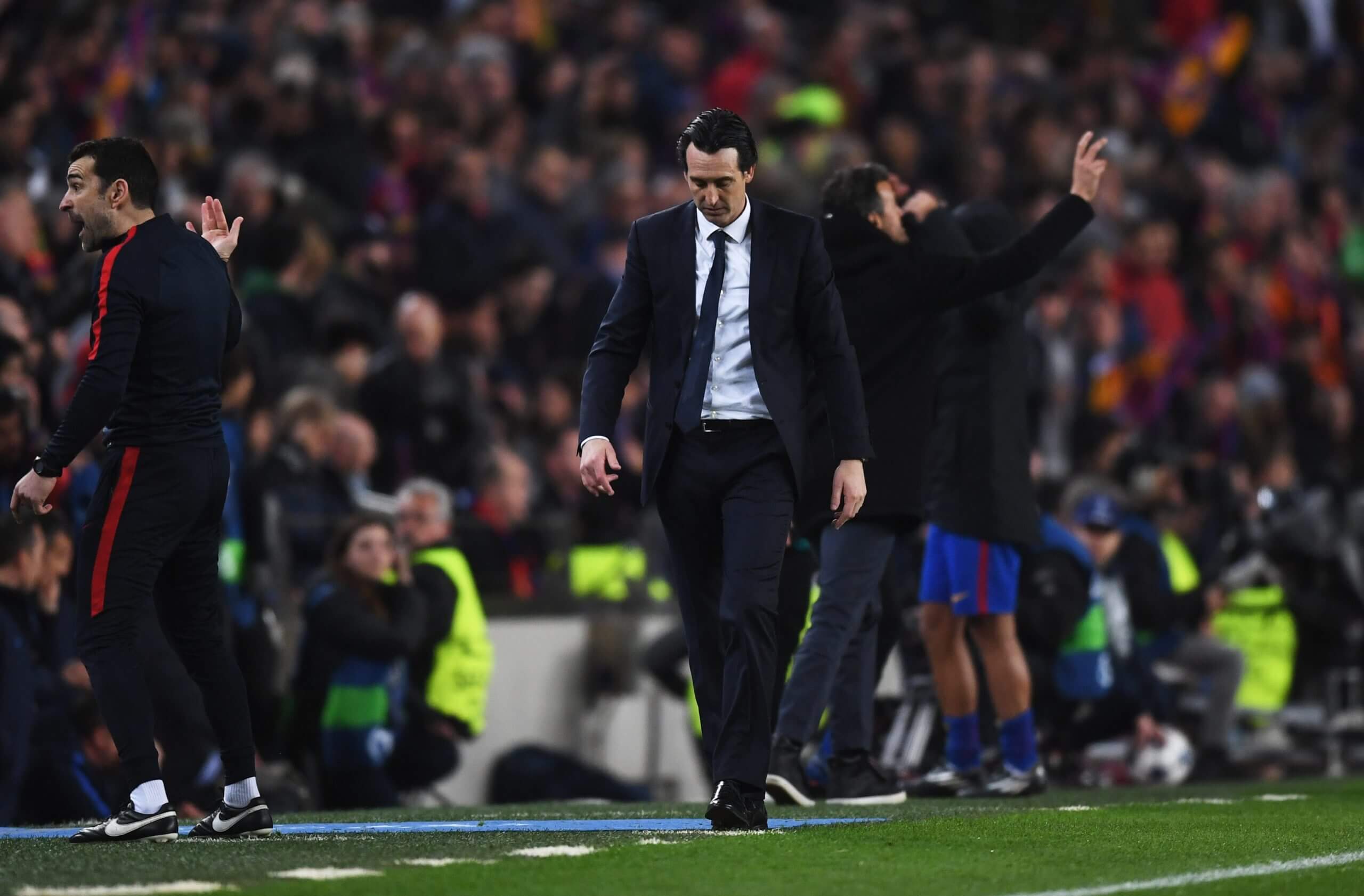
Igor Emery looks out above Real Union’s Gal Stadium and towards France.
The border is only a few hundred yards away from Real Union, the Spanish third-division side he and his brother Unai have a majority stake in.
The next time Igor crosses the border will be for Unai Emery’s return to the French capital on Wednesday evening, with Aston Villa playing Paris Saint-Germain in the first leg of a Champions League quarter-final. The occasion will mark a touchstone in Villa’s rapid transformation under the Spaniard and provoke memories from his two-season spell in Paris.
Advertisement
“My brother is a top manager,” Igor smiles. “I don’t say that because of the trophies he’s won. I say it because of how he gets them — how he manages, the way he works and because he’s invested 200 per cent. He tries all the time to improve and to learn from other people. This may be the key thing. Everybody can say, ‘I would like to learn from him’ but he tries to learn from others because he really thinks he can keep on improving.”
While Emery’s imprint on Villa has shown to be an unmitigated success, the perception of him in Paris and at PSG is slightly more complex.
In total, Emery collected five domestic honours in two years and yet, fairly or unfairly, is largely defined by those in Paris for one, standalone game.
He was a key casualty in what would forever be known as ‘La Remontada’ — “the comeback” — after one March evening in Barcelona.

A dejected Emery reacts after Barcelona’s sixth goal in the infamous Champions League tie (Michael Regan/Getty Images)
Emery arrived in France with a growing reputation for winning in Europe, with three straight Europa League titles at Sevilla. It was hoped that particular bank of experience would be lent on at PSG, a club yearning to win the Champions League, Europe’s blue-chip competition.
PSG finished second behind Monaco in Emery’s opening 2016-17 season in Ligue 1, though the destruction inflicted by Barcelona in the last 16 of the Champions League two months earlier weighed far greater. They became the first team in the competition’s history to be eliminated from the knockout stages after winning a first leg 4-0.
That win was on Valentine’s Day, but three weeks later, love turned to despair and caused irreversible damage to PSG and Emery. They imploded, with Barcelona scoring in the 88th, 91st and 95th minute to inspire a 6-1 victory and one of the most infamous comebacks in sporting history.
A haunted Emery accepted his team had “lost everything” in the capitulation’s aftermath. Sources who also endured the trauma of that night have spoken to The Athletic on the condition of anonymity to protect their relationships and future jobs.
Advertisement
While many at PSG share admiration for Emery’s coaching abilities, there is an acceptance that he is most remembered for a defeat that caused wide-scale embarrassment to the club.
“His time was marked by the famous La Remontada,” says one PSG staff member, who worked closely with Emery. “We got destroyed, totally destroyed. This was a traumatic time and that trauma stayed. It took us a long time to get back on track because after this match we were the joke of football.
“He is associated with this huge loss for us. This was the worst time ever for the club, because we went from 4-0 up to a game where we felt he didn’t prepare the team well enough for what was coming. He did not prepare them as to what it would be like to play there.
“The players were much too relaxed and he made a lot of wrong coaching decisions. It was a total humiliation and in the stadium after, we were in shock.”
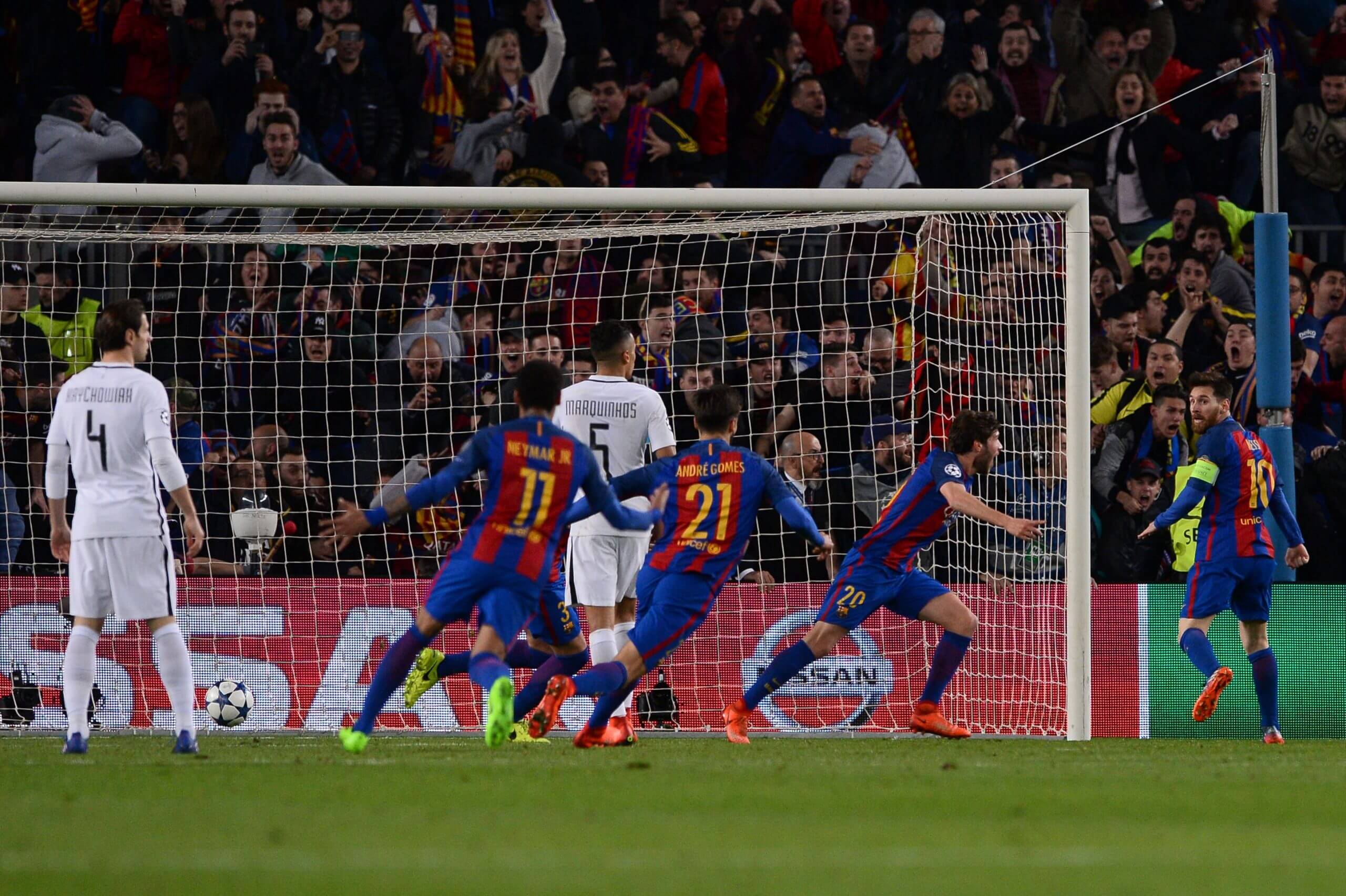
Barcelona’s sixth goal completes La Remontada (Josep Lago/AFP via Getty Images)
Sources close to Emery felt PSG’s desperation to win the Champions League could, at times, be all-consuming. “Project PSG” was built on winning the Champions League and appeared to be the be-all and end-all for the club. For Emery, such singular ambition threatened to take for granted success domestically, which included a Ligue 1 title in his second season and two Coupes de France and two Coupes de la Ligue.
“At PSG and Arsenal, he learned about managing situations better,” says a close confidante to Villa’s manager.
For all of Emery’s efforts, the Barcelona defeat sowed the seeds of his eventual demise.
“He did have some success but the problem is that if you ask people, they won’t remember — all they remember is the La Remontada and that’s the issue,” says a PSG source. “In this club, you’re expected to win Ligue 1 — you’re expected to win the national trophies. Everything is centred on the Champions League. That’s what you’re judged on.”
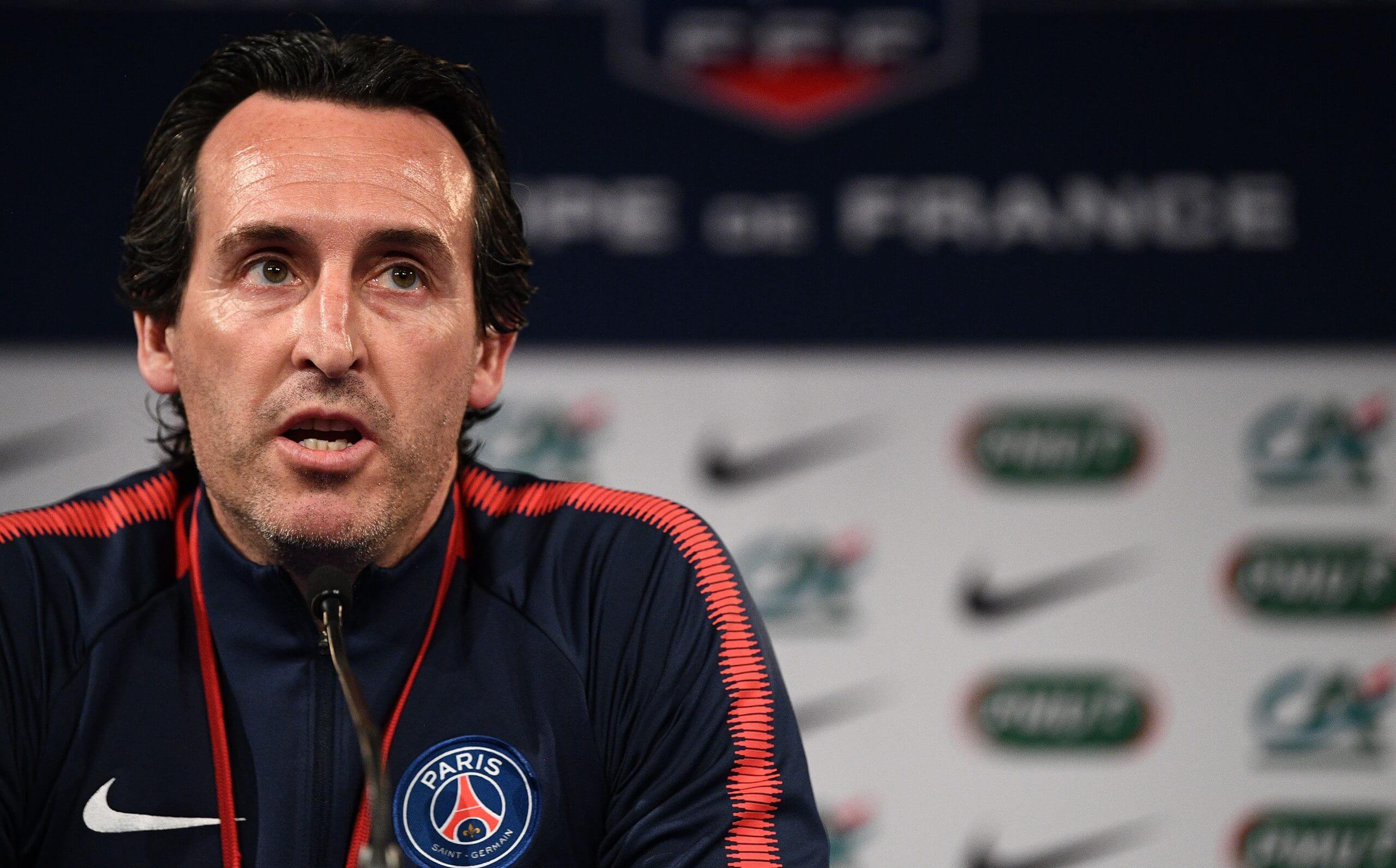
Emery had success at PSG but not in the Champions League (Franck Fife/AFP via Getty Images)
Emery grew up in Hondarribia, in the Basque Country and on the border of France. He can speak a handful of languages, though the perception of him at PSG was that his French could be limited and affected his ability to communicate with players. Similarly to his framework at Villa, he held a close circle of trusted aides, designed to compensate for some of his shortcomings, such as the language barrier.
Advertisement
“In France, the obsession is with PSG,” adds a club source. “I think he had a hard time handling all that pressure, especially as he didn’t speak great French which would have allowed him to connect with the public and the team. Whereas his replacement Thomas Tuchel learned it in two weeks. He stayed at a monastery and did nothing else. It was amazing he picked it up so quickly.”
The support network built around Emery at Villa is in contrast to the environment he worked in at PSG and then Arsenal. Emery is most effective when he has significant autonomy to shape the club in his image. While he does not demand to be directly involved in transfer negotiations or off-field strategy, for example, he wants governance of all footballing operations. To do this, Emery requests the freedom to put in place a group of confidantes that can carry out his wishes.
In Paris, Igor worked closely with him but they were outnumbered by PSG’s hierarchy. In comparison, one of the first calls Emery made before joining Villa was to friend Damian Vidagany, who initially came in as his personal assistant so he could manage those aspects off the field.
Augmented by the arrival of the president of football operations, Monchi, he and Vidagany take care of transfer negotiations, act as sounding boards for players’ and agents’ queries and connect the different departments together. It is widely accepted Emery did not have those figures of personal connection at Arsenal and PSG, which ultimately punctured progress.
Both clubs are huge institutions, interweaving several large departments. Politics naturally plays a part and requires a deft approach and a certain diplomacy from a manager. It is an all-encompassing remit that involves managing areas outside of just football that Emery, quite simply, did not have time for.
Multiple observers describe him as a “footballing obsessive” solely focused on improving his side from a tactical perspective. He pays little attention outside of his immediate footballing bubble which, invariably, means the structure around him needs to be managed from elsewhere.
Unlike Vidagany and Monchi, Emery did not have “his people” in Paris. This meant that working within an executive structure which was not always aligned allowed schisms to grow and cliques to foster. Increasingly, big transfer fees invited big egos and big money.
Advertisement
“I know when I am the main man at the heart of the group and when I am not,” Emery told The Tactical Room in May 2018 and following his departure. “In every club, you have to know the role you take and the role the rest of the group gives you. My opinion is that, at PSG, the leader is called Neymar. Or more exactly, the leader will be called Neymar because he is in the process of becoming it.”
The individual who ruined Emery’s first season joined him at PSG in his second. Neymar signed for a world-record transfer fee from Barcelona to the personal delight of PSG’s hierarchy, who viewed the Brazilian’s acquisition as a demonstration of the club’s world standing.
The outlay was vast, swelled by the second capture of Kylian Mbappe from Monaco. Together, the pair cost a staggering £344million (€401.26m, $388.16m) and cranked up the pressure on Emery to deliver at the second time of asking.

Emery had to deal with a “dysfunctional” dressing room at PSG (Alain Jocard/AFP via Getty Images)
Anything but winning the Champions League would cost Emery his job. A man already under pressure saw the temperature turned up. Emery teams have traditionally been built on cohesion, yet he was steadily finding himself managing egos and individual talent unsuited to a collective style of management.
PSG won four domestic titles and, by and large, appeared a team in perfect, working order. They played in a 4-2-3-1 formation and were dominant in possession. They scored freely and were the favourites to win every match in France. This continued until they were knocked out of the Champions League round of 16 by eventual winners, Real Madrid.
The writing was on the wall. Soon after PSG were confirmed as league champions with a few weeks left of the campaign, Emery announced he would be leaving upon the expiration of his contract.
There was little surprise. Unrelenting speculation about his future had swirled through French media throughout the season, which was not exactly disarmed by an increasingly fractured dressing room.
Advertisement
Neymar and striker Edinson Cavani argued over who took penalties and various media publications reported cliques in the dressing room.
“It became very dysfunctional,” says one source close to the squad at the time. “We stayed one more year with him because I think we did not find an appropriate coach to replace him and took a while.
“He had issues with the big players who, after a while, did not connect with him. People like Thiago Motta and Thiago Silva. The issue for coaches like him was when you come to a club that has big players with big experience, they can turn on you fast.”
More broadly, however, there was an appreciation for Emery’s work ethic and tactical acumen, with that night in Barcelona viewed as an anomaly. But belief in his long-term pedigree became brittle and was he was evidently losing the power struggle.
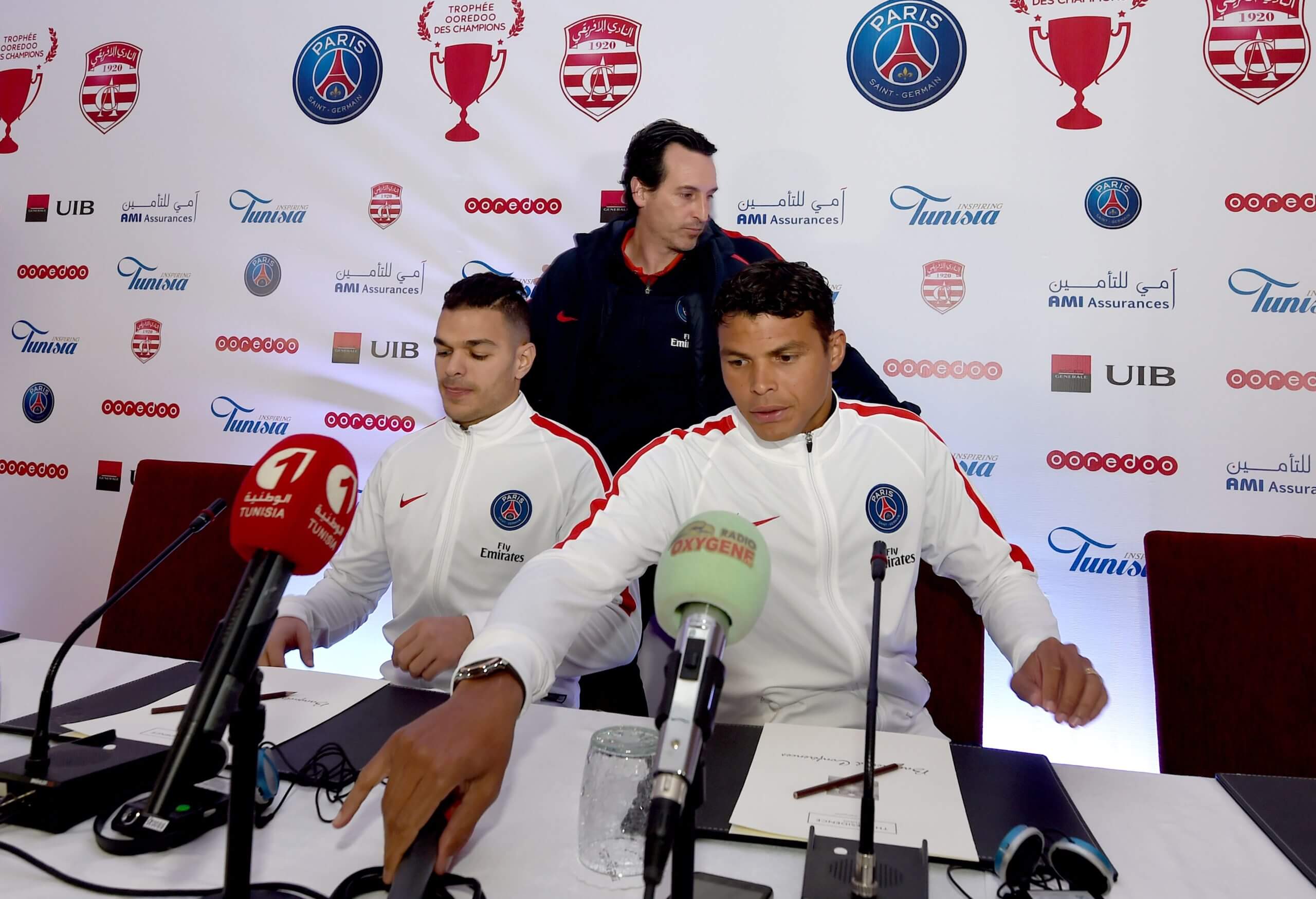
Emery’s relationship with both Hatem Ben Arfa and Thiago Silva was strained (Fethi Belaid/AFP via Getty Images)
Hatem Ben Arfa was presented to the public on the same day Emery joined PSG in July 2016 but any desire for a close relationship proved remote. They were polarising characters and the separation in how they viewed football was too vast to close.
Emery quickly lost patience with the player as reports emerged of his irritation towards Ben Arfa in training and lack of professionalism, while the latter lost confidence in his coaching staff following La Remontada. Ben Arfa ended up training with the reserves, despite protests from team-mates.
“Hatem has known the situation since the start of the season and was reminded about it during the transfer windows,” Emery said. “Am I sad for him? There are 14 players who can play in each match — that is football.”
Emery is known for his meticulousness in training and long, exhaustive hours spent in analysis meetings. High-profile players did not always agree with this approach.
“To have leaders, you have to give them space to express themselves,” Motta told local reporters following Emery’s departure. “It’s a way of working, of managing a group. This is not a criticism of Unai, he likes to control everything.”
Marco Verratti insisted players had “found their smile again” once Tuchel replaced Emery, acknowledging a “difficult” training environment.
Nonetheless, the consensus towards Emery from inside the dressing room was not completely unanimous.
There were anecdotes of Cavani and Emery’s close relationship, where they spoke over the phone early on and learned about one another’s footballing passions and backgrounds. Emery wanted to hear about Cavani’s childhood in Uruguay and what made him tick.
Advertisement
A tendency to focus on the specifics is a distinct attribute of Emery’s, yet there was a feeling at PSG that he would have been better inclined to concentrate on broader matters, such as managing upwards. Curiously, tactical ingenuity was not seen as crucial an aspect as managing players’ egos, considering the squad was enriched with quality and could get by, in most games, on individual talent alone.
It was therefore no coincidence that PSG fell short in the Champions League when they had to rely on more coherent game plans and for players to be more disciplined in their roles.
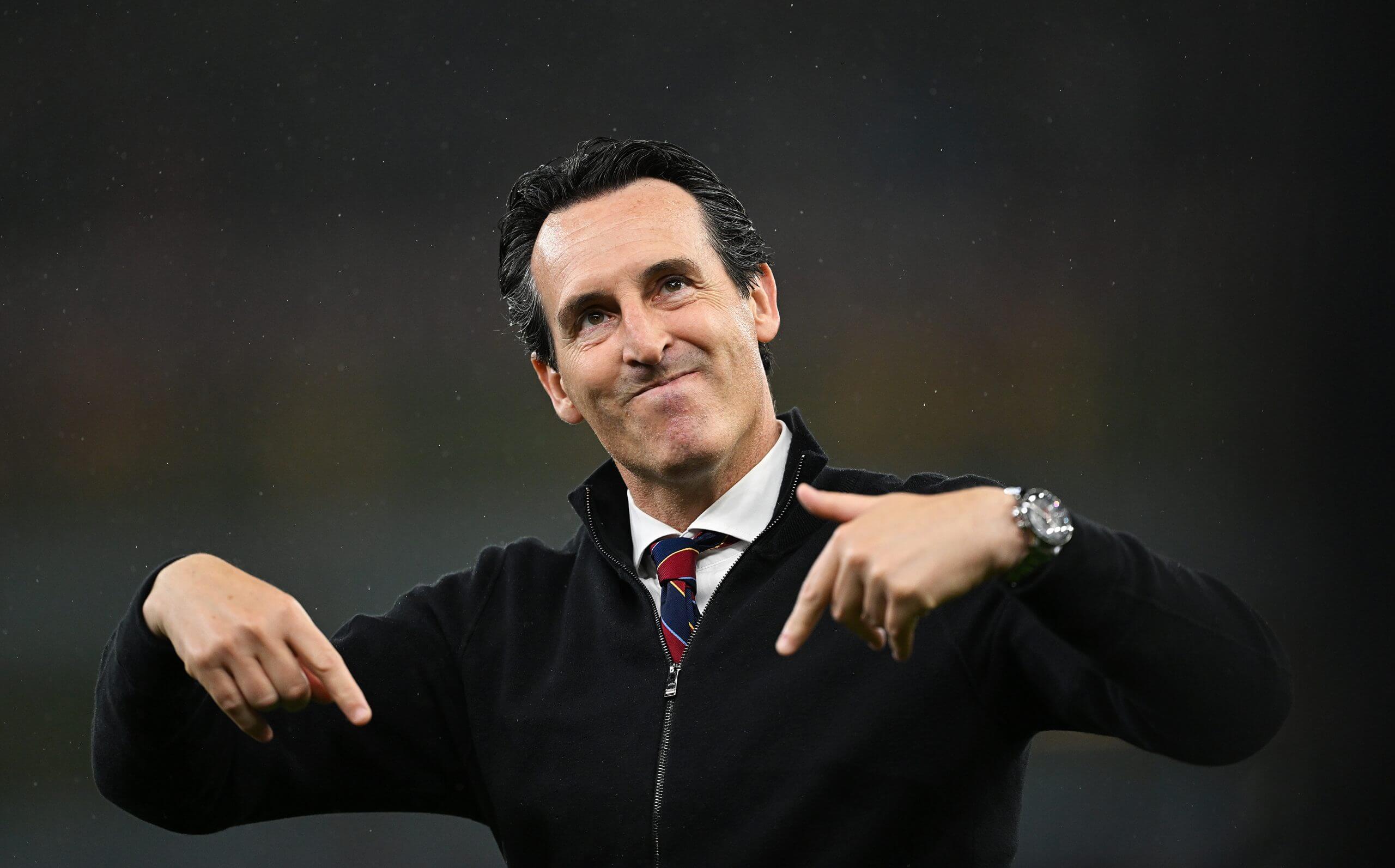
Emery returns to the Parc des Princes on Wednesday with a restored reputation (Shaun Botterill/Getty Images)
On Wednesday evening, Emery returns to Paris, in the competition which ultimately caused his downfall at the Parc des Princes. His reputation has been restored and reaffirmed at Villa, with a setup that enables him to concentrate on footballing matters and possess a level of oversight rarely seen among modern-day managers. It means he can control recruitment, culture and which players are retained and sold.
“It will be a tough atmosphere for him. For sure, it will bring back some memories,” says one PSG source. “I don’t know how he’s going to be greeted because, apart from the Barcelona game, everything he might have done decently has maybe been erased. That defeat did not go away for two or three years.”
Beating PSG would not be a case of revenge — Emery certainly won’t see it that way — more like proof to Parisians that not only was he a victim of circumstance but that he now deserves to be regarded among the sport’s managerial elite.
(Header photo: Bertrand Guay/AFP via Getty Images)
This news was originally published on this post .






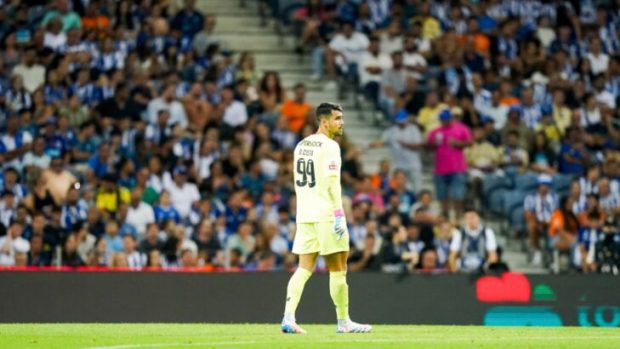
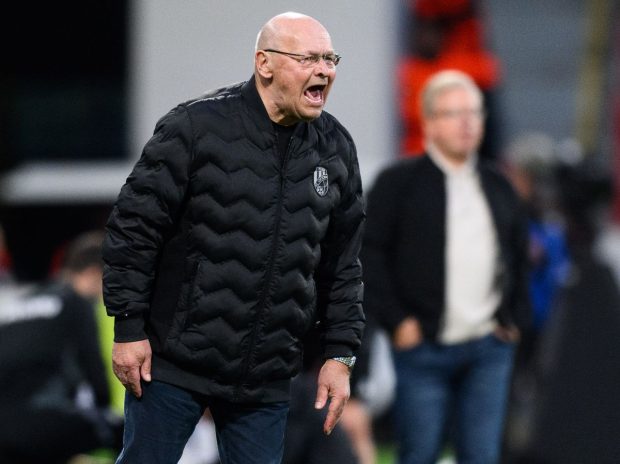
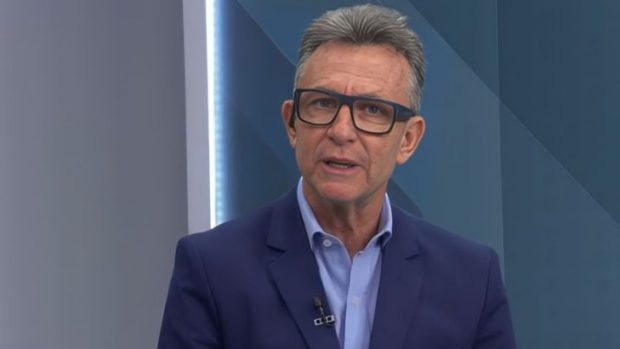

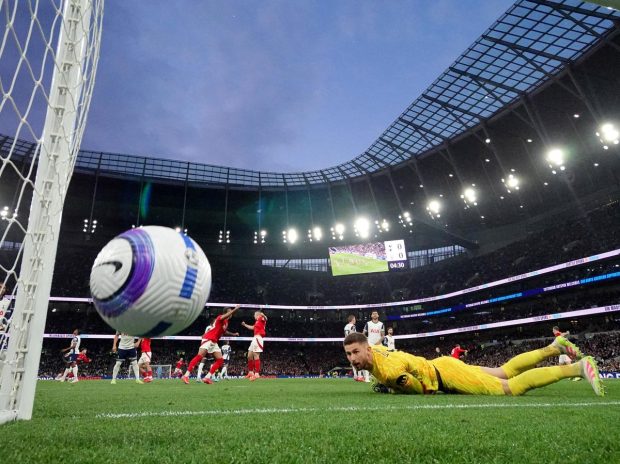
Be the first to leave a comment